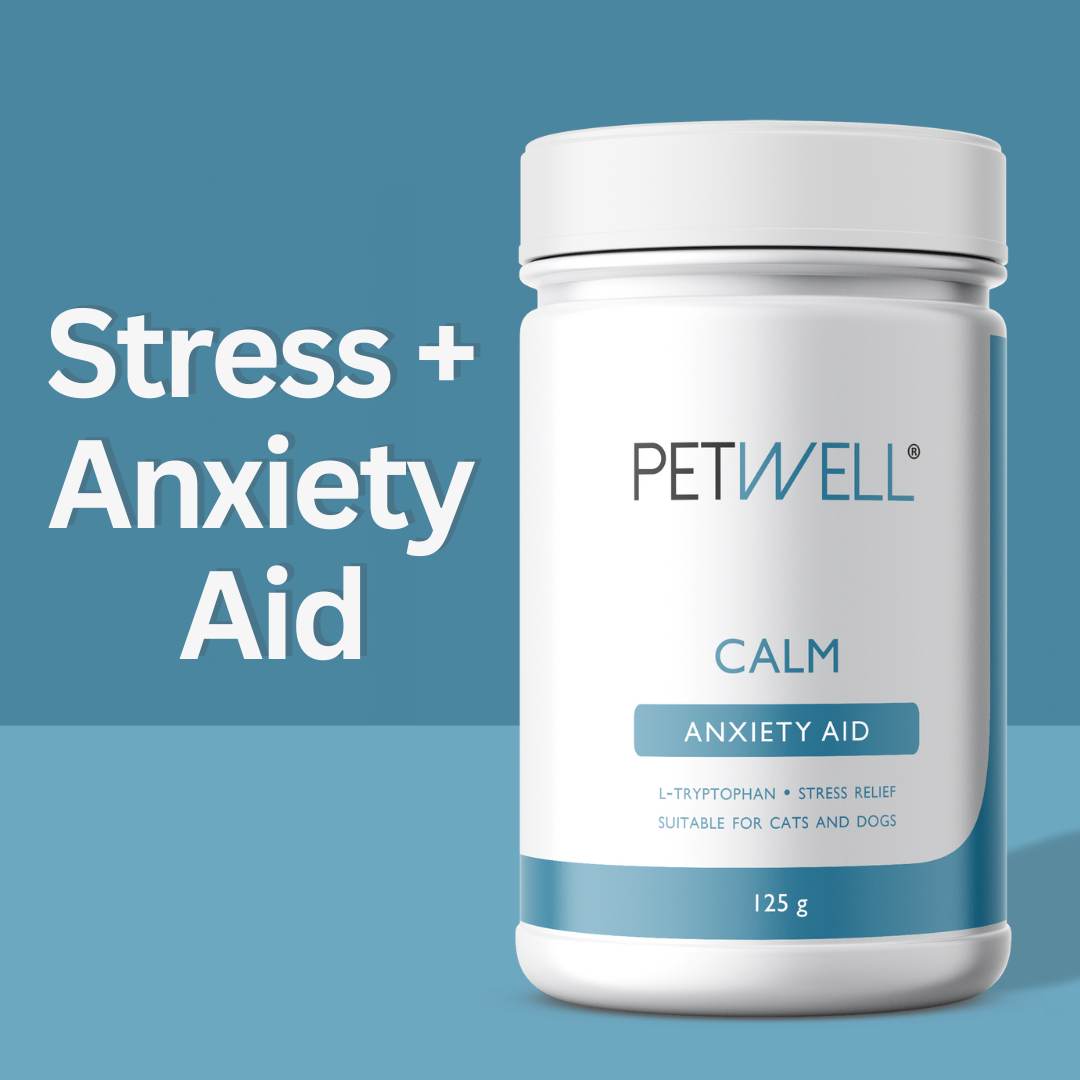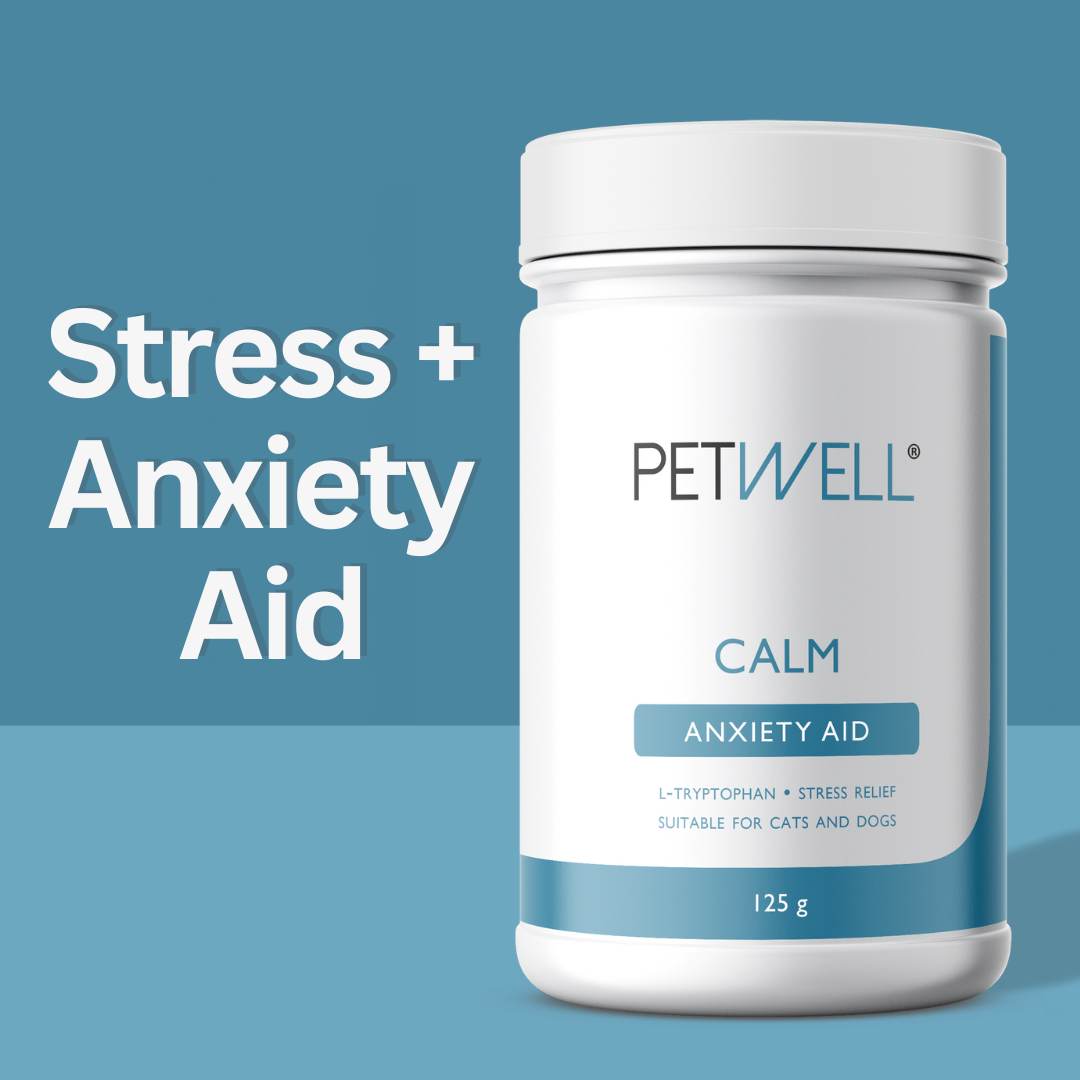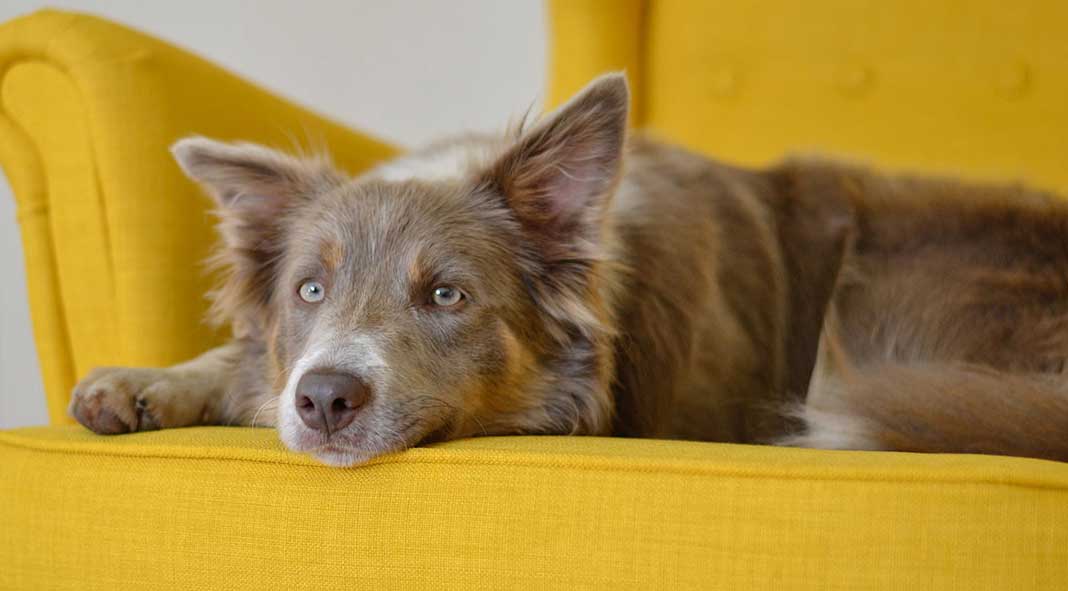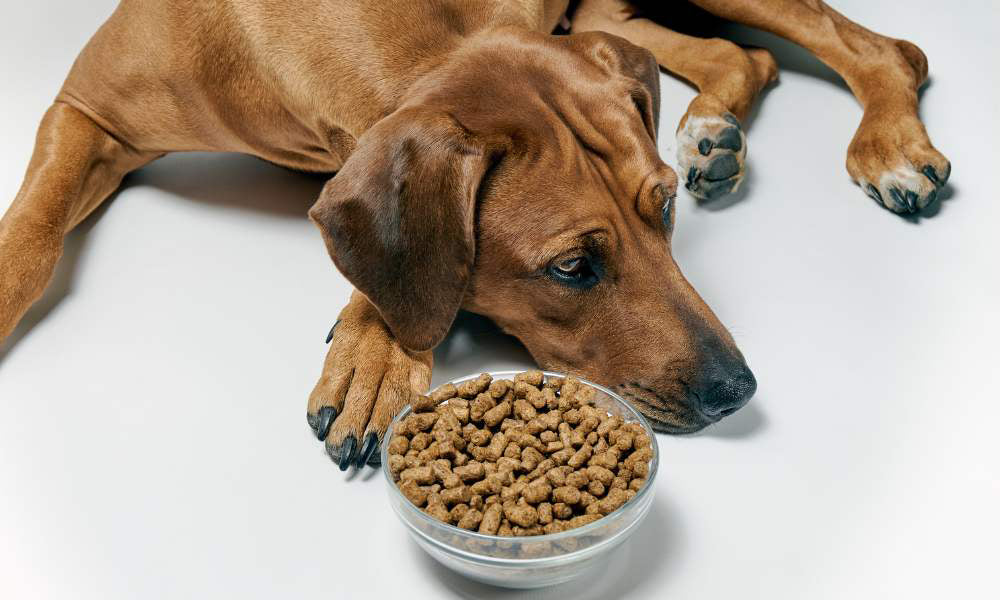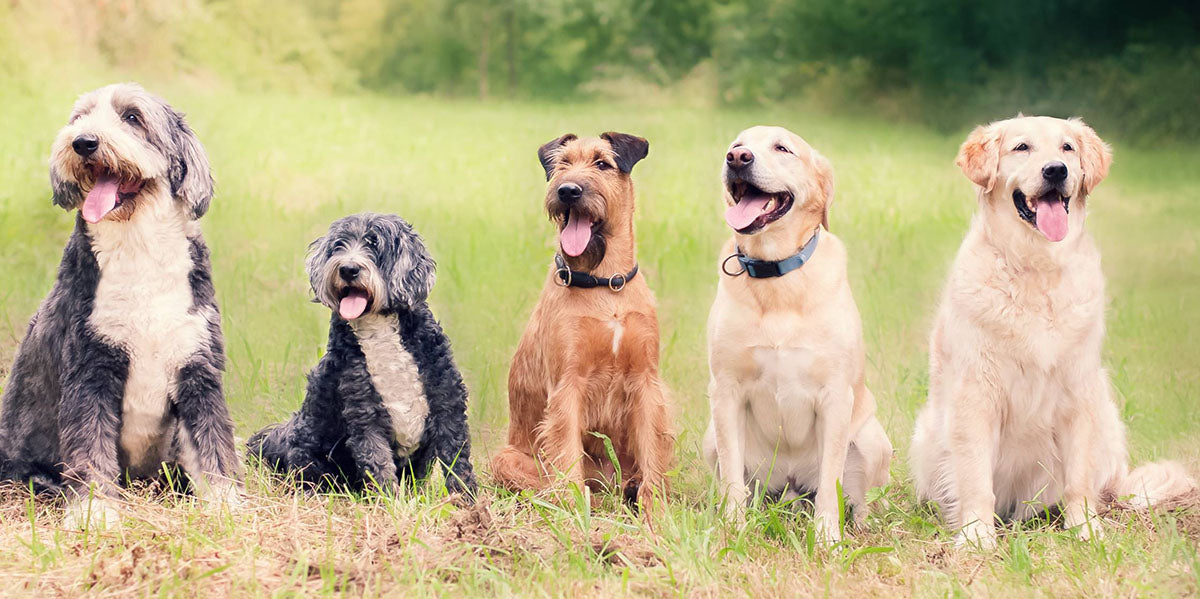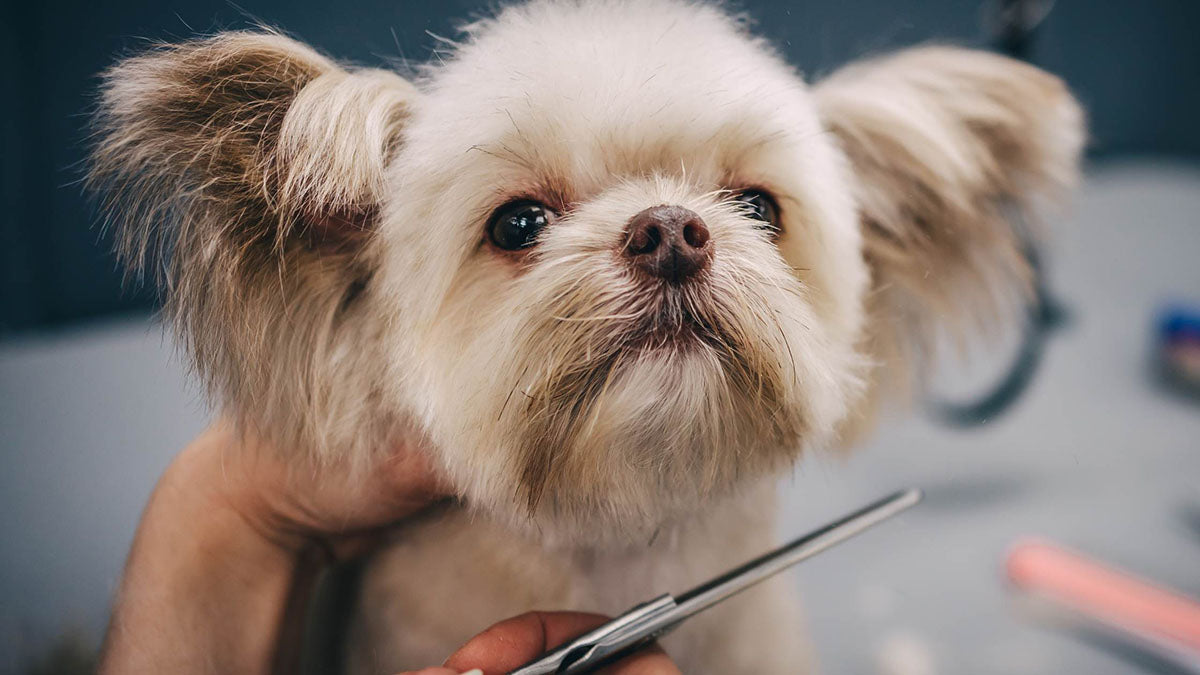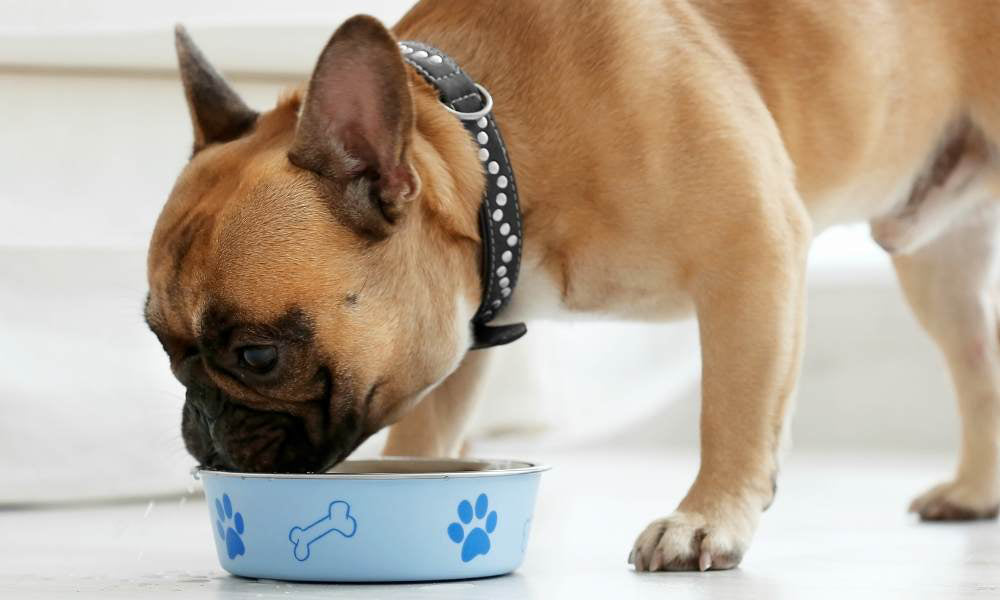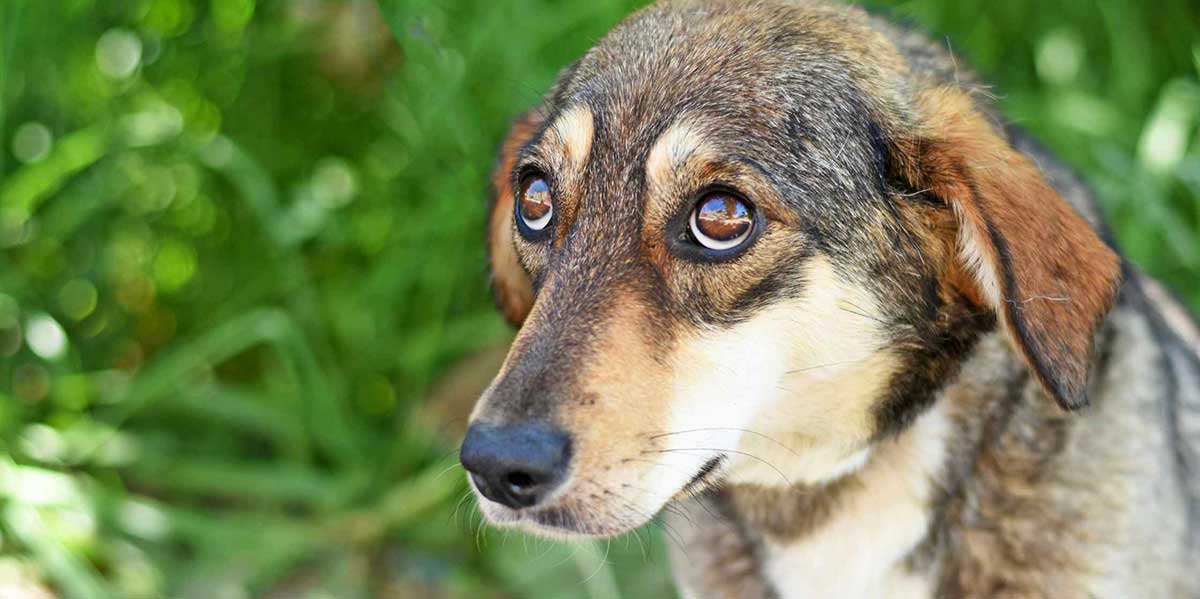Understanding what causes anxiety in dogs and the common causes of anxiety is the first step towards providing them with a happy and stress-free life.
Anxiety in dogs can range from the well-documented separation anxiety to factors such as genetic predispositions and the impact of aging, each canine carries a unique emotional fingerprint that requires careful consideration and thoughtful solutions.
What is Dog Anxiety?
Dog anxiety is a state of stress or fear that can be triggered by different situations, such as separation, loud noises, new environments, or past trauma. In some cases, dogs are born with genetic anxiety, or their breed may be predisposed to it.
Often, we mistake anxious behaviours for misbehaviour, when our dogs are struggling with anxiety.
Read more about What is Dog Anxiety: Causes, Symptoms & Solutions
6 Most Common Types of Anxiety in Dogs

Pet anxiety can present in many forms. But what are the most common types of dog anxiety?
Separation Anxiety
The most common pet anxiety of all. Dogs are pack animals, and being left alone can trigger separation anxiety. This condition often manifests through destructive behaviour, excessive barking, whining, or even attempts to escape.
Tip: Gradually condition your dog to being alone by starting with short periods and gradually increasing the time. Each time you come back, reward them with treats and affection. Providing engaging toys and creating a comfortable space can alleviate separation anxiety. Read more about Separation Anxiety in Dogs
Social Anxiety
Some dogs may feel anxious or fearful around other dogs, strangers, or in crowded places, leading to social anxiety.
Tip: Gradual exposure to new people and environments, along with positive reinforcement, can help build your dog's confidence. Read more about Social Anxiety
Genetic Predisposition
Some breeds are more prone to anxiety than others due to genetic factors. Understanding your dog's breed characteristics is essential in addressing potential predispositions.
Tip: Tailor your approach to your dog's specific breed traits. Some breeds may benefit from additional socialisation, while others may require more downtime and relaxation. Working with a dog behaviourist can help with strategies to help keep your dog calm.
Senior Dog Anxiety
As dogs age, they may experience cognitive decline, leading to anxiety or confusion. Senior dogs may become anxious due to changes in their senses or health issues.
Tip: Provide extra comfort and support for your ageing dog. Regular veterinary check-ups, and adapted care can help manage anxiety associated with the ageing process.
Fear Anxiety
Fear-related anxiety can be triggered when your dog feels unsafe. Most commonly, when they are exposed to new people, animals and unfamiliar surroundings. Your dog senses your energy and emotions. If you are anxious, it’s likely that your anxiety is causing your dog anxiety.
Tip: Maintain a calm demeanour, gradually introduce them to the source of their fear in a safe environment while using distractions like toys or treats, do this consistently.
Travel Anxiety
Many dogs experience anxiety during car rides or when traveling to new places.
Tip: Sit in a parked car with your dog, offering treats and praise. Gradually increase the duration, then introduce short drives with treats and a friend driving while you sit with your dog. End drives at fun destinations and use a carrier or harness for added comfort and safety.
PetWell CALM supplement and CALM + Lamb treats. Formulated by an animal naturopath, with naturally occurring l-theanine, L-Tryptophan, a natural amino acid that boosts serotonin levels, along with other claiming ingredients, CALM is designed to promote relaxation and reduce anxiety.
Trust in the power of natural ingredients and try CLAM to keep your PetWell.
Dog Anxiety: 7 Most Common Causes
Loud Noises
Thunderstorms, fireworks, or loud noises can be terrifying for dogs. The sudden and intense sounds can lead to anxiety and fear.
Tip: Create a safe space for your dog during noisy events. Consider desensitisation training by exposing your dog to recorded sounds at a low volume and gradually increasing it over time.
New Environments
Dogs thrive on routine, and a sudden change in their environment can be unsettling. Moving to a new home, introducing new family members, or changes in daily routine can cause stress.
Tip: Maintain a consistent schedule, provide familiar items like bedding and toys, and gradually introduce your dog to the new environment. Positive reinforcement using treats and praise can help create positive associations with the changes.
Health Issues
Pain, illness, or discomfort can contribute to anxiety in dogs. Physical ailments, especially chronic conditions, may impact their behaviour and overall well-being.
Tip: Regular veterinary check-ups are essential to rule out underlying health issues. Addressing any health concerns can improve your dog's overall comfort and reduce anxiety.
Past Trauma
Dogs with a history of abuse or neglect may carry emotional scars that lead to anxiety.
Tip: Patience, love, and understanding are needed when dealing with a dog that has experienced trauma. Consider consulting with a dog behaviourist to develop a plan for rehabilitation.
Lack of Exercise
Dogs need regular physical activity to stay healthy and happy. A lack of exercise can lead to excess energy, boredom, and restlessness, contributing to anxiety. Read more about Benefits of Exercise for Dogs
Tip: Provide daily exercise through walks, playtime, or activities that suit their breed and energy level.
Inadequate Mental Stimulation
Dogs are intelligent animals that require mental stimulation to stay engaged. Lack of mental enrichment can lead to boredom and anxiety.
Tip: Provide toys, interactive games, and training sessions to keep your dog's mind active.
Unpredictable or Harsh Discipline
Inconsistent or harsh discipline can create fear and anxiety in dogs. They may become anxious and fearful of certain situations or people.
Tip: Use positive reinforcement techniques to encourage good behaviour. Consistency and patience are key in training, and building a trusting relationship with your dog will help reduce anxiety associated with discipline.

10 Signs Your Dog May Be Anxious
Anxious dogs may display multiple symptoms including some of the ones listed here:
- Aggressiveness
- Excessive licking or chewing
- Yawning
- Ears pinned back
- Destructive behaviour
- Escaping the yard
- Urinating in the home
- Drooling & panting
- Barking or howling when no one is home
- Pacing
To Learn more about recognising the signs of Anxiety and how to overcome these anxieties read more on Signs to Watch for and How to Calm Your Dog
In Summary
There are many things you can do to help with your dog’s anxiety. As we mentioned earlier, your dog responds in like to your emotions and energy.
When your dog does something wrong, refrain from raising your voice or punishing them. That approach adds to their fear and anxiety. Positive reinforcement works best. We recommend finding a trainer who has experience with anxious dogs.
Also, take the time to play with your dog in a calm and relaxing way. This will make them feel loved and safe. In addition, it does wonders for our own well-being!
Disclaimer: The entire contents of our emails and website are not to be taken as medical advice. The team at Pet Squad Pty Ltd trading as PetWell encourages you to make your own pet healthcare decisions based on your research and in partnership with a qualified pet healthcare professional.






